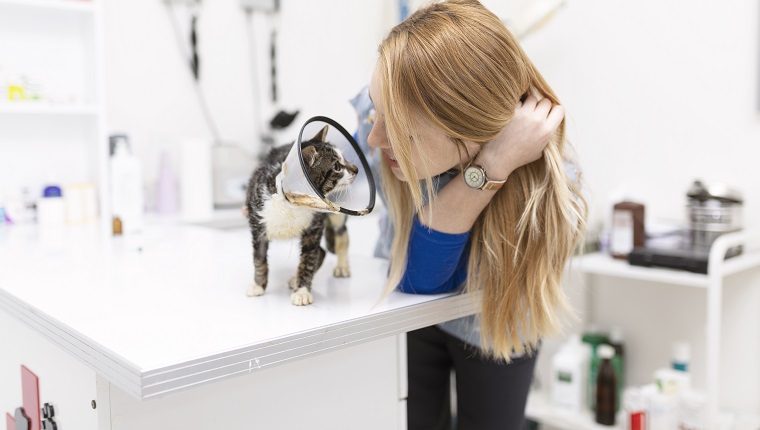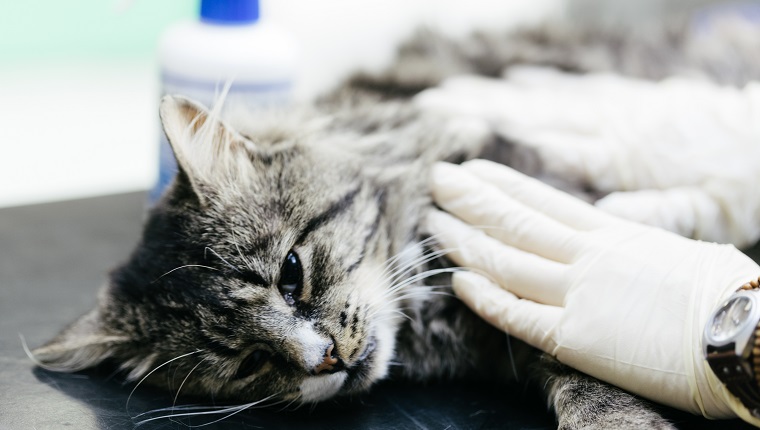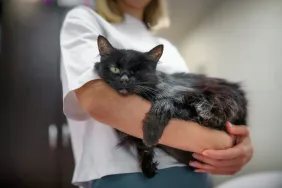Veterinarians classify brain injuries in cats in two ways: as primary brain injuries or secondary brain injuries.
Primary brain injuries usually result from a direct trauma, like an accident with a moving vehicle. Secondary brain injuries follow on from a primary injury and can include swelling of brain tissue or bleeding from blood vessels in the brain.
If you see signs that your cat might be suffering from any type of injury, then you must consult your veterinarian for a proper diagnosis and course of treatment. Here’s what you should know about the symptoms, causes, and treatments of brain injuries in cats.
Symptoms Of Brain Injury In Cats
Brain injuries in cats can result in a sizable range of symptoms depending on precisely how the brain has been affected. Some of the most common symptoms include:
- Losing consciousness
- Bleeding from the nose or ear
- Skin turning a shade of blue (known as cyanosis)
- Seizure
- Breathing quickly and heavily
- Very low heart rate
- Presence of blood in the eye
Causes Of Brain Injury In Cats

There are a number of potential causes of brain injuries for cats. Some of the most frequent causes include:
- Direct trauma to the head (such as a car accident)
- Seizures
- Hypothermia
- High blood pressure
- Parasites in the brain
- Brian tumors
- Hyperthermia
- Toxins
- Nervous system infections
Veterinary Treatments
If you suspect that your kitty has suffered a brain injury, then your veterinarian will want to carry out a fully physical examination. Your vet will also want to ask a series of questions designed to figure out if there are any recent incidents or circumstances that might have prompted the injury.
The vet will order blood and urine tests, and they’ll often use X-rays, CT scans, and MRI scans to examine the skull if they suspect trauma has occurred. Additionally, an electrocardiogram (ECG) can help analyze any issues with a cat’s heart.
When it comes to treatment, vets usually consider the condition to be an emergency that requires immediate hospitalization. Normalizing any issues involving your cat’s body temperature, oxygen levels, and heart rate will be key.
Your cat may also need intravenous fluids might as part of a course of treatment. In some cases, cats will need an oxygen tube to help them breathe.
Vets often prescribe painkillers for cats who have suffered from a brain injury. As ever, if your vet recommends medicine for your kitty, then it’s vital that you stick to the precise dosage and frequency instructions and complete the full course of medication.
While your cat recovers at home, it is imperative that you keep up regular visits with their vet so that they can monitor the condition of your cat’s progress.
Has your cat ever suffered a brain injury? Did they make a full recovery? Tell us all about it in the comments below.









